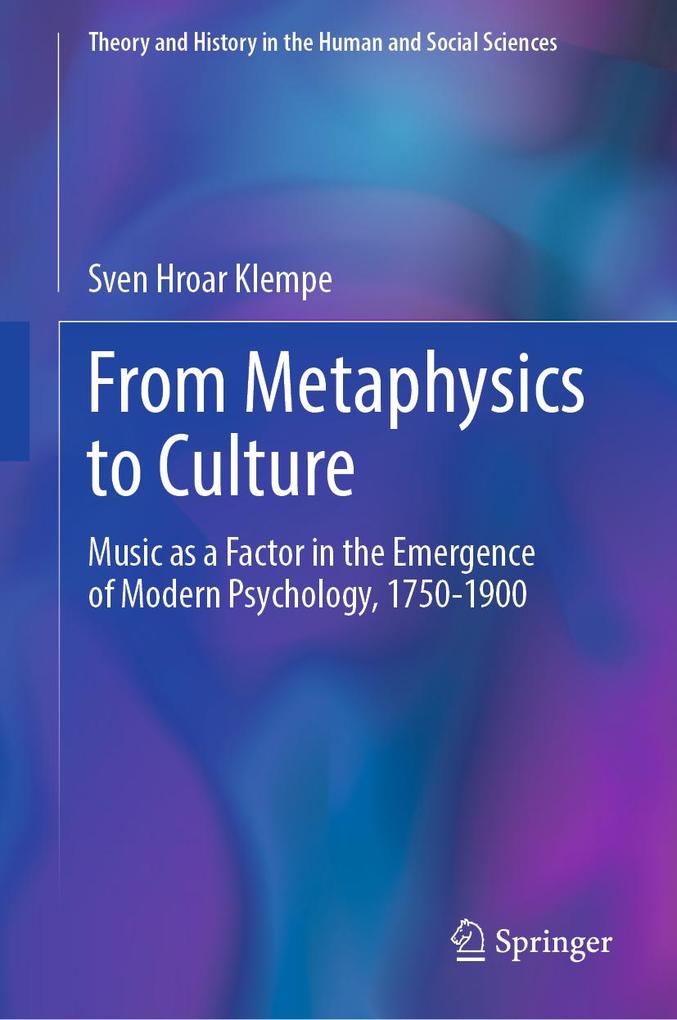
Sofort lieferbar (Download)
This book is a follow-up to the book Tracing the Emergence of Psychology, 1520-1750: A Sophisticated Intruder to Philosophy (Springer 2020). In contrast, this new book covers the period 1750-1900. Whereas the previous book focused on how psychology intervened in philosophy and theology, the perspective now is how philosophy and psychology tried to free themselves from each other. Kant's critical project formed an important start on this. Nevertheless, this was a struggle during the whole period, with a culmination at the end of the 19th century. When experimental psychology was established in Leipzig, psychology became regarded as an independent science. Another aspect of this new project is to pursue how experimental psychology ended up with music and culture as important factors. These are highly related to the role of sensation in psychology, which influenced how Baumgarten turned the psychological project into aesthetics in 1750. Thus, psychology in dialogue with music and aesthetics forms the red thread in this book. This book targets all interested in the history of psychology.
Inhaltsverzeichnis
Chapter 1. Introduction. - Chapter 2. From Numbers to Sensation. - Chapter 3. Psychology Consolidates Itself in Metaphysics. - Chapter 4. Empirical Psychology is Banned from Metaphysics Immanuel Kant. - Chapter 5. Mathematics and Music as Fundamental Processes of the Mind Johann Friedrich Herbart. - Chapter 6. Psychology at the Core of Existence Søren Kierkegaard. - Chapter 7. Music as the Direct Factor Gustav Theodor Fechner. - Chapter 8. Wilhelm Wundt and Experimental Psychology. - Chapter 9. The Cultural Psychology of Wilhelm Wundt.
Produktdetails
Erscheinungsdatum
29. April 2025
Sprache
englisch
Seitenanzahl
209
Dateigröße
5,10 MB
Reihe
Theory and History in the Human and Social Sciences
Autor/Autorin
Sven Hroar Klempe
Verlag/Hersteller
Kopierschutz
mit Wasserzeichen versehen
Produktart
EBOOK
Dateiformat
PDF
ISBN
9783031895951
Entdecken Sie mehr
Bewertungen
0 Bewertungen
Es wurden noch keine Bewertungen abgegeben. Schreiben Sie die erste Bewertung zu "From Metaphysics to Culture" und helfen Sie damit anderen bei der Kaufentscheidung.









